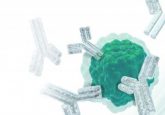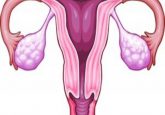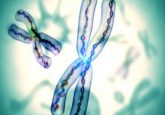Lactose intolerant individuals show reduced risk of breast, ovarian and lung cancer
New research carried out by researchers at Lund University and Region Skåne (both Sweden) has indicated that individuals exhibiting lactose intolerance are associated with a reduced risk of developing lung, breast and ovarian cancers.
The incidence of breast and ovarian cancers varies markedly between geographical regions and countries worldwide, with rates being highest in North America, Western Europe and the Nordic countries, and lowest in East Asia and Central African countries. Previous studies have attributed this variation to environmental factors as opposed to genetic or ethnic factors.
In connection with this, other studies have hinted at a link between large consumption of dairy products and the high incidence of breast and ovarian cancers in North America and Western Europe, but have so far remained inconclusive.
Jianguang Ji (Lund University) and his team decided that a novel approach was needed in order to solve this so far unanswered question. “We investigated whether low consumption of milk and other dairy products protects lactose intolerant people against breast and ovarian cancers. Since epidemiological and animal studies show that milk consumption and lung cancer risk are both associated with the protein IGF-1, we also investigated lung cancer,” explained Ji.
“Using nationwide data from two Swedish registers (the Inpatient Register and the Outpatient Register) we identified 22788 individuals with lactose intolerance and examined their risk of suffering from lung, breast and ovarian cancers. The risks of lung cancer (standardized incidence ratio (SIR) = 0.55), breast cancer (SIR = 0.79) and ovarian cancer (SIR = 0.55) were significantly lower in people with lactose intolerance compared to people without lactose intolerance, irrespective of country of birth and gender,” described Ji. “By contrast, the risks in their siblings and parents were the same as in the general population. This suggests that the lower cancer risk in people with lactose intolerance may be due to their diet.”
Ji also emphasized that despite these results it would be wrong to conclude that milk is a risk factor for these cancers. Related factors such as lower calorie intake due to minimal milk consumption as well as additional protective factors in plant-based milk drinks, often substituted in lactose-intolerant diets, may also be contributing to the observed negative association between lactose intolerance and breast, ovarian and lung cancers.
“We must interpret these results with caution because the association we found is insufficient to conclude a causative effect,” concluded Ji. “Further studies are needed to identify factors that explain the study’s results.”
Source: Lund University press release





